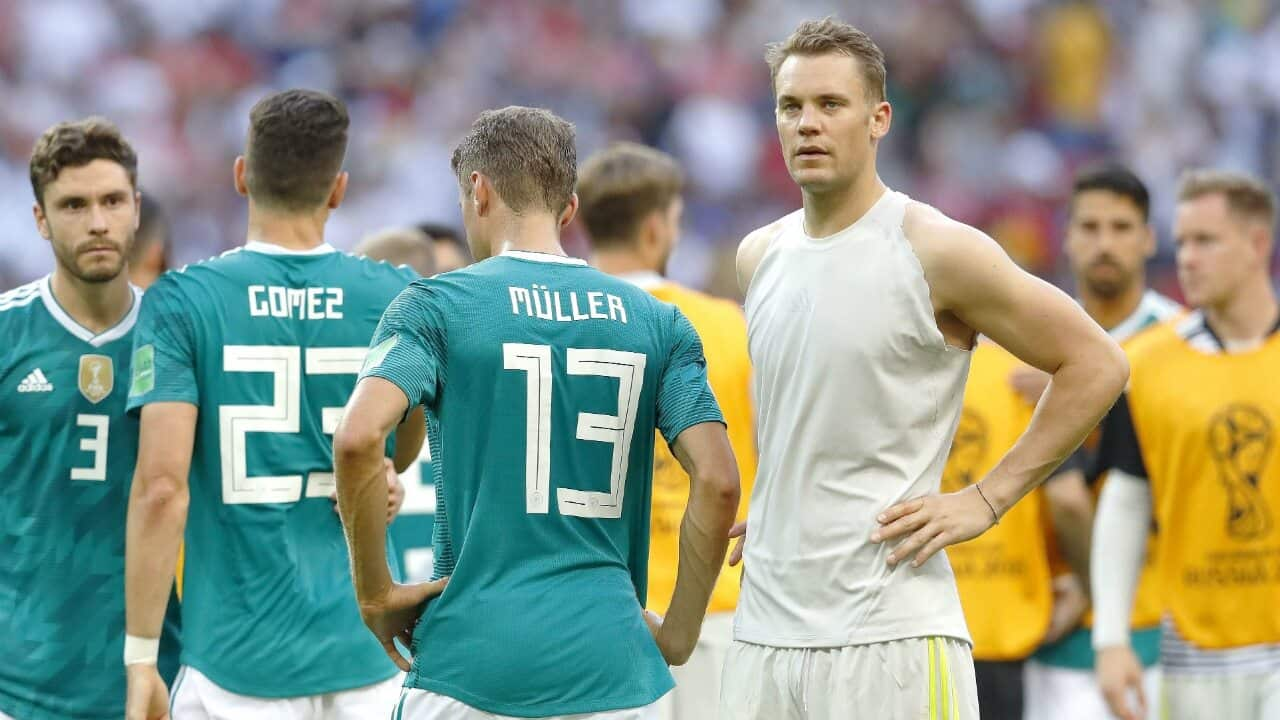Just as they did in the past two European Championships, Germany thought they were better than they were. There are more detailed explanations – tactics, preparation and personnel – but this is the underlying cause.
Excuses will be made and scapegoats sought but hubris has cost them in three out of the past four major tournaments. This is the cost of believing in your own hype.
Germany did not bow out of the World Cup because they lacked talent. They exited because their physical talent failed to be met with the requisite psychological complex, primarily attitude and application. They were beaten by their own complacency.
I have no doubt that Germany wanted to do well. I have no doubt that Germany wanted to make history and become the first team since 1962 to win the tournament back-to-back.
The problem is that everyone around the national team assumed it would happen; it was merely a matter of working out the details. You could see it in the players. They never picked up the speed of this tournament.
In football, Germans are at their best when they are innovating and hard-working. They are at their worst when they feel invincible. The players, and coaches, took too many liberties. Their holidays at Rugen were all scheduled to begin a few days after the final.
The obvious example is Manuel Neuer. He didn’t play all year and good as Neuer is, Barcelona’s Marc-Andre ter Stegen – not only a brilliant keeper but in magnificent form – just had to be selected. But no, coach Joachim Low went for Neuer, who was as rusty as you’d expect.
Pre-tournament, in an effort to cement his place as an oracle of football, Low dismissed Leroy Sane. It would have been a masterstroke if it had worked but the coach just looks selfish and foolish now. Just as the 2010 generation is about to be phased out, Low may face a similar destiny.
Broadly speaking, German football is not to blame for this. The Bundesliga remains an exceptionally brilliant league and the development infrastructure is world class. These results don't change that.
The iceberg analogy is often used to describe problems below the surface but the issue for Germany is in plain sight. Just look at the body language of some of the players – and not just one or two, but the whole squad.
In the end, the key reference points in the spectacular failure for this German team is not the 2014 World Cup but the 2016 European Championships and the 2017 Confederations Cup.
At the Euros, Germany played quite similar to how they did in Russia. They never questioned they would make the final or that they were the best team, even though it was patently clear they were not. France had their measure in the semi-final, avenging the quarter-final defeat of two years before.
If that was seen by many as the “reality check” the team needed to re-focus before Russia 2018, it was Russia 2017 that restored a false sense of security.
Germany sent their reserve team to the Confederations Cup, cruised through the month undefeated – including in the final against Chile – and believed they had two teams capable of returning a year later and winning the World Cup.
This year, they strolled into their group with far too much swagger. Mexico, Sweden, Korea Republic: no obvious dangers on paper, right? Wrong. Very wrong.
Those three teams all had what the Germans did not: humility and unity. Each was prepared to work to a limit that the Germans were not. Each was prepared to do something the Germans were not: sacrifice for the team.
Die Mannschaft will recover, of course, because they have so much existing quality and a brilliant development system. But they need to make some changes. Finding a mirror would be a good start.


